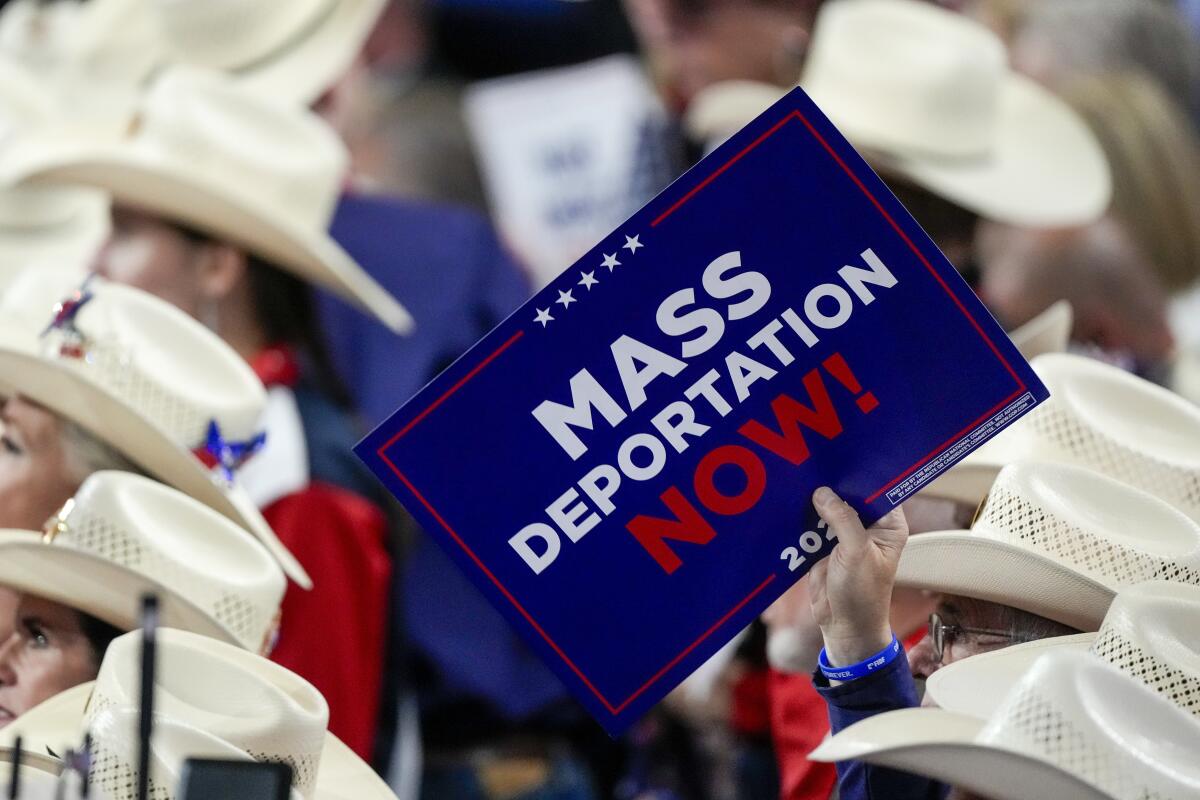The shadow of impending deportation policies under President-elect Donald Trump is not just a political issue; it’s a human and economic crisis unfolding in real-time across the United States. While official plans for mass deportations remain in the pipeline, the uncertainty surrounding these potential changes has already left a profound mark on communities, businesses, and industries that depend heavily on immigrant labor.
Sam Sanchez, a respected restaurateur and advocate for immigration reform, recently visited Chicago’s Little Village, a neighborhood affectionately called the “Mexico of the Midwest.” His observations were startling: businesses, particularly restaurants, were reporting dramatic declines in revenue. “Sales are down by 50% in some places,” Sanchez said. “People are scared to even walk outside. The fear is palpable—it’s everywhere.” This fear, he explained, is not just about being apprehended but about the devastating ripple effects it has on daily life, work, and family stability.
For Sanchez, who also represents the American Business Immigration Coalition, the stakes are clear. The hospitality industry, one of the backbones of the American economy, is already teetering under labor shortages. “If workers are too scared to show up, restaurants will have no choice but to close their doors,” Sanchez explained. “And this is just one industry. Multiply this across agriculture, construction, healthcare, and you’re talking about millions of jobs.”
Across the U.S., an estimated 10.5 million undocumented immigrants reside within its borders, with approximately 8.5 million contributing to the workforce. Their roles span critical industries that form the bedrock of the economy. Giovanni Peri, director of the Global Migration Center at UC Davis, highlights the potential disaster of large-scale deportations. These actions, he argues, would tighten the labor supply in sectors that are already grappling with shortages. “Industries like agriculture and construction could collapse under the strain,” Peri said. “The economy won’t just slow down—it will shrink.”
Farm labor, a particularly vulnerable sector, could face the harshest blow. According to Ron Estrada of Farmworker Justice, undocumented immigrants make up the majority of the U.S. agricultural workforce. Many have worked in the fields for over a decade, forming the backbone of the nation’s food supply. Deporting these workers, Estrada warns, would cut farm labor in half, leading to food waste, inflated prices, and potential insecurity in the food supply chain. Despite their contributions, these workers are trapped in a system that offers no clear pathway to permanent residency. Seasonal visas, like the H-2A program, provide only a temporary solution, leaving farms without the year-round labor they desperately need.
This precarious situation is not new. The COVID-19 pandemic revealed the devastating consequences of labor shortages, especially in the hospitality sector. Restaurants, already struggling to recover, found themselves unable to fully reopen due to a lack of staff. Sanchez recalls how many establishments could operate only a few days a week. The workers who remained were largely undocumented immigrants, ineligible for unemployment benefits, and vital to the survival of the industry.
While some argue that mass deportations could alleviate inflation by reducing demand, economists counter that the negative effects on the labor market would far outweigh any potential benefits. Michael Feroli, Chief U.S. Economist at JPMorgan, explains that the expected drop in immigration could result in fewer jobs created each month. “We’re looking at tighter labor markets, especially for lower-skilled workers, which will ripple through the entire economy,” Feroli said.
For immigrants like Joanne Eriaku, a single mother and entrepreneur from Uganda, the future feels like a looming storm. Eriaku, who fled her home country to provide a safer life for her two sons, has worked tirelessly to rebuild her life in the U.S. Despite her success—running three businesses and contributing to the economy—she fears for her family’s stability. Her eldest son, nearing 21, faces the daunting prospect of navigating the asylum system on his own. “I want him to have the opportunities he deserves,” she said, her voice heavy with worry. “I can’t imagine what would happen if he were forced back to Uganda.”
This fear is mirrored across immigrant communities, where uncertainty about the future is taking a toll. Businesses, too, are bracing for impact. Studies suggest that mass deportations often lead to reduced wages and fewer opportunities, even for native-born workers, due to the economic disruptions they create.
Trump’s campaign promises have fueled expectations for sweeping changes, but the feasibility of these actions remains in question. The logistical and financial challenges of mass deportations are immense. Joe Brusuelas, an economist at RSM US, believes that the administration may focus on symbolic actions rather than large-scale operations. “The costs, both economic and human, will eventually outweigh the benefits,” he said.
For now, the nation waits. The specter of fear and uncertainty grows, leaving millions of people—immigrants, business owners, and workers alike—grappling with a future that feels increasingly precarious.









